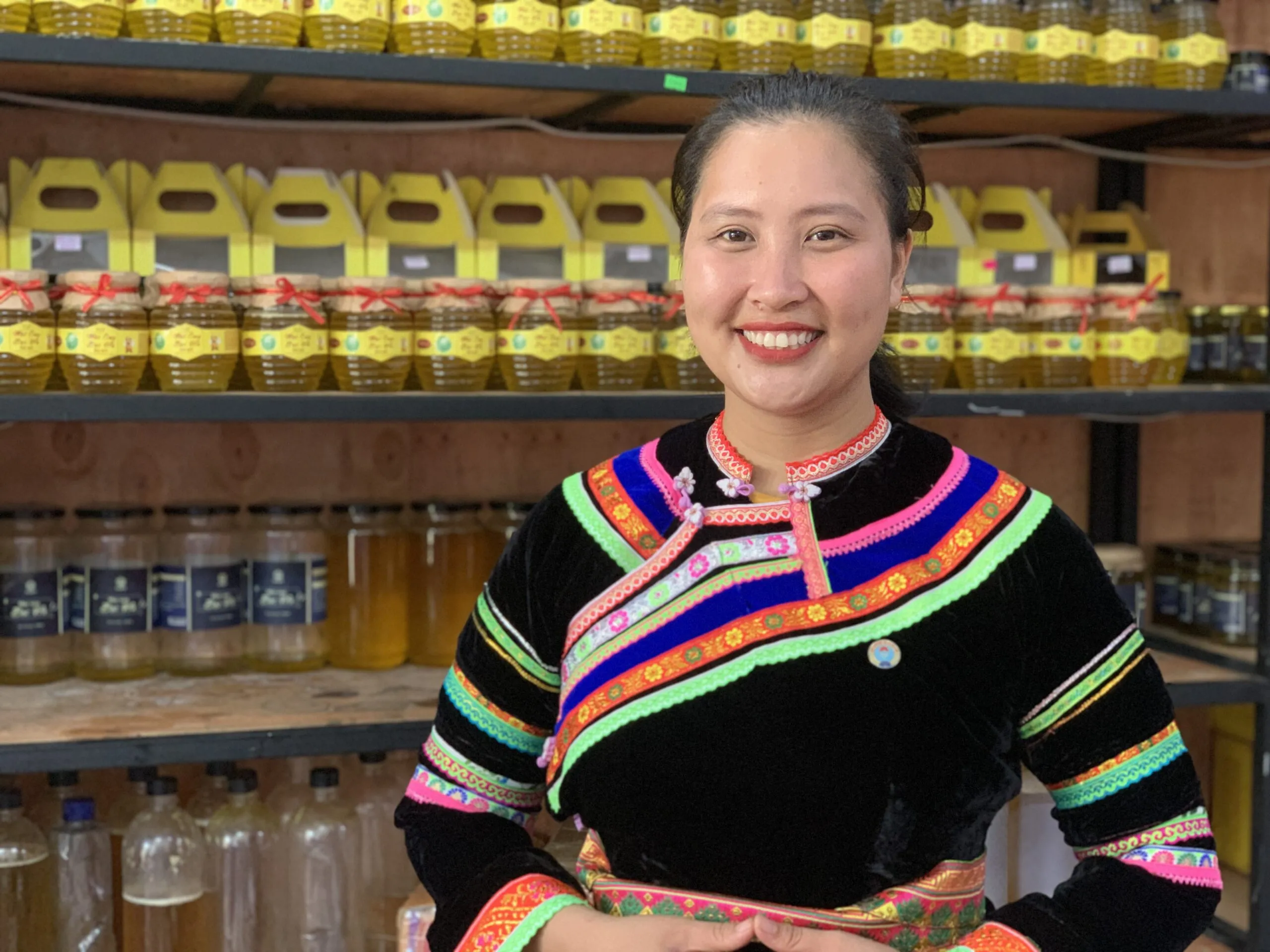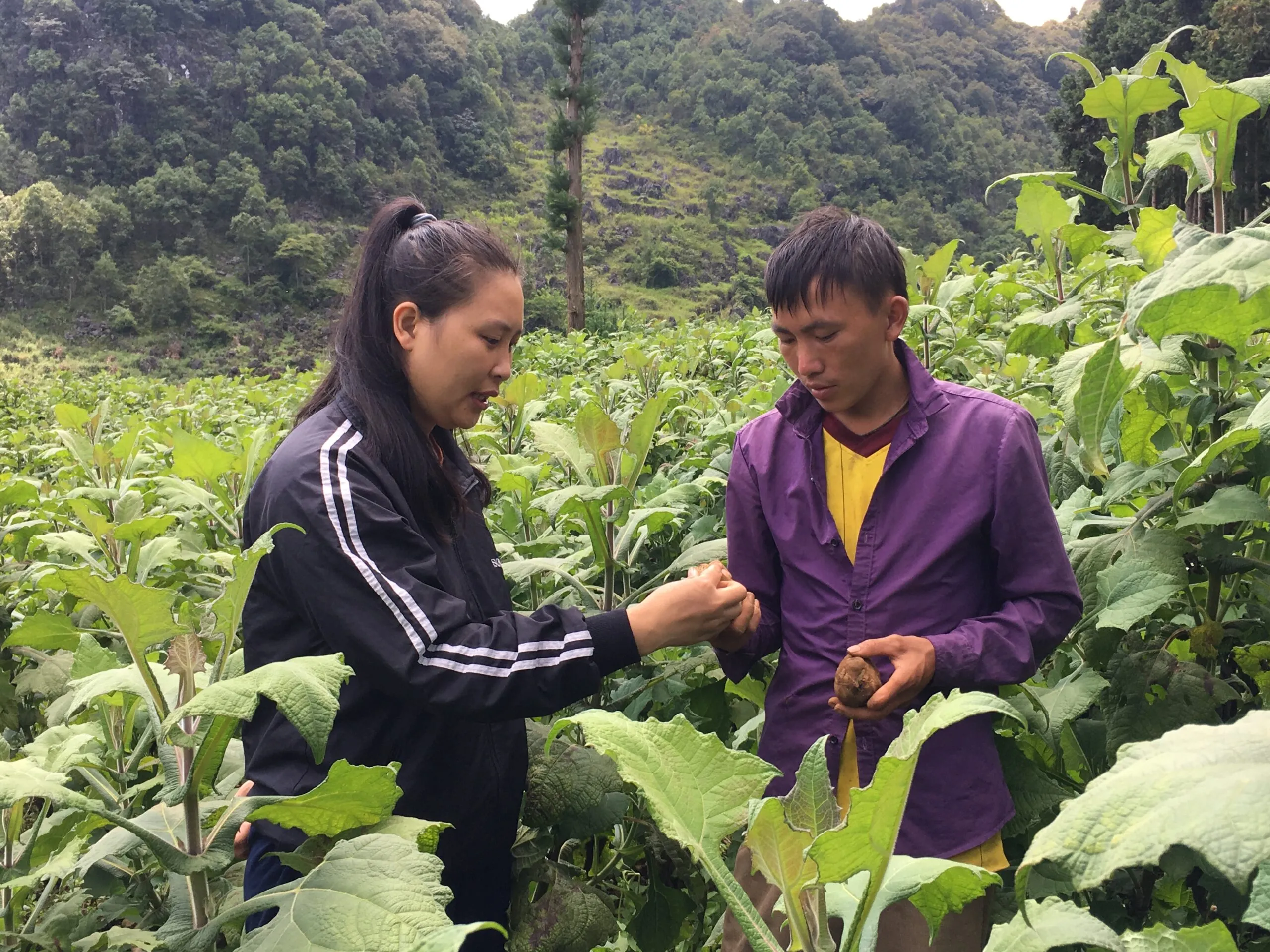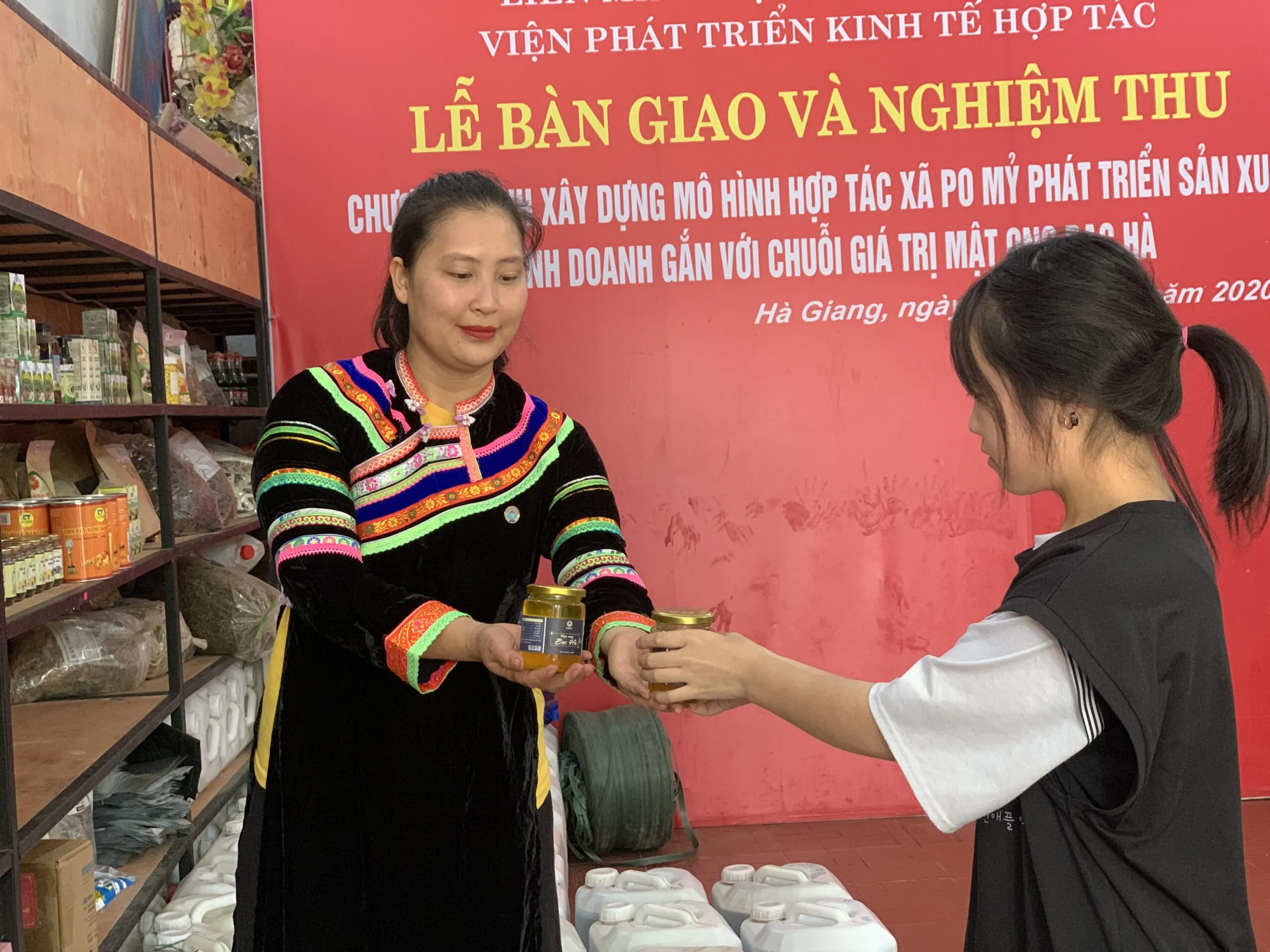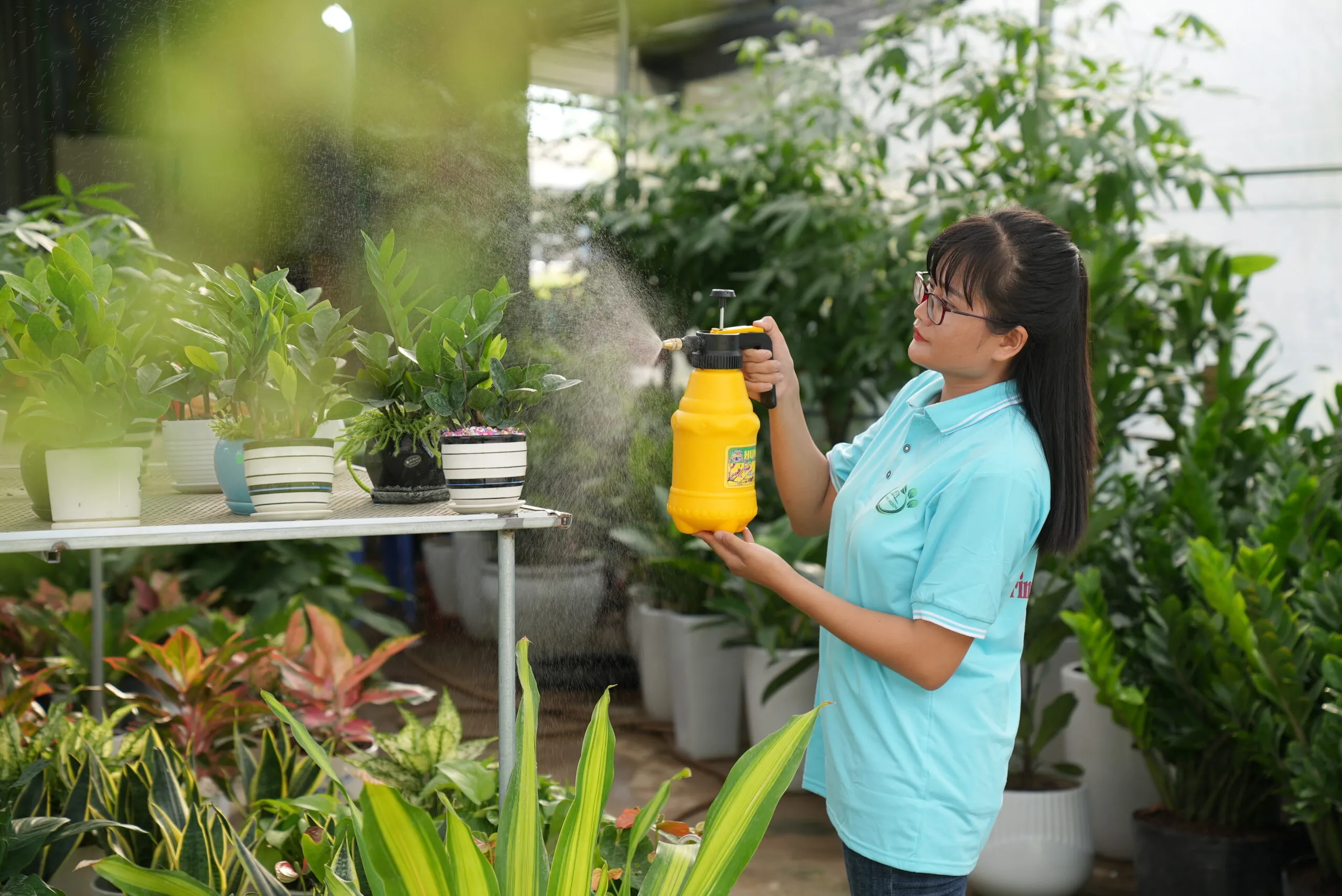In Vietnam, given the burdens on women of household duties and unpaid care, the Ignite program has a strong focus on helping women entrepreneurs with work-life balance. That balance is especially important for mothers like Hoa who have babies. “When starting a business, there are feelings of loneliness and depression, I was also not supported by my family to start a business. Thanks to the Ignite training, I can find ways to heal my soul.”
Hoa is proud to share that she is from the Gelao ethnic minority group and is passionate about her community. “I want to enhance the image of our products to contribute to changing the face of the homeland. Indigenous resources create a lot of value,” she says. Despite her ambitions, Hoa is clear about the challenges she faces. “As a start-up ethnic minority co-operative, I face many difficulties in terms of accessing capital, information technology and new knowledge.” Hoa also talks about the pressure she faces from family and society to have a ‘stable’ job and to spend more time with her baby.
“After participating in the training, I felt like I was liberated, as if a whole new life chapter was opened.”
On access to finance, Hoa explains that, firstly, there is a lack of information about available loans. “Some loans have many requirements, including collateral,” she says. “As a young person without family support, I do not have strong personal financial potential nor collateral for a loan.” In Vietnam, CARE’s Ignite program is working with leading commercial bank VPBank to adapt an existing loan with preferential interest-rates and lower collateral requirements for women entrepreneurs.
The COVID-19 pandemic initially had a devasting impact on Hoa’s co-operative, as 70% of its output was going to tourist attractions. Hoa had to act fast. “Instead of accepting that 70% figure, I minimized our risk by switching from offline to online, taking advantage of channels such as Facebook and e-commerce platforms,” Hoa explains. “I also learned to bring products to customers in the shortest way — through livestreaming on social platforms. This enabled me to be closer to my customers, to sell more products, and to create an example for other businesses to learn from, so that all of us can overcome this difficulty together.” She continues, “Digital skills are extremely important these days. Because now people connect online, sales are online, even meetings are online. If we don’t change our tactics, we won’t be able to keep up. Digital skills will also help our business grow beyond the territory of Vietnam and expand to foreign markets.”




